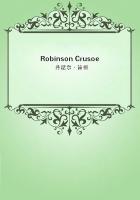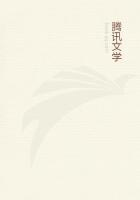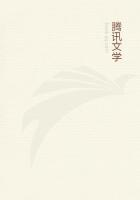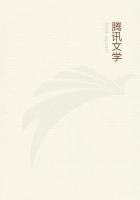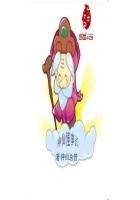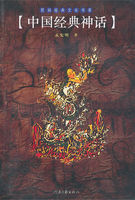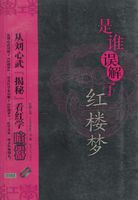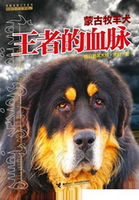The proposed categories have, then, been adequately dealt with.We must next explain the various senses in which the term 'opposite' is used.Things are said to be opposed in four senses: (i) as correlatives to one another, (ii) as contraries to one another, (iii) as privatives to positives, (iv) as affirmatives to negatives.
Let me sketch my meaning in outline.An instance of the use of the word 'opposite' with reference to correlatives is afforded by the expressions 'double' and 'half'; with reference to contraries by 'bad' and 'good'.Opposites in the sense of 'privatives' and 'positives' are' blindness' and 'sight'; in the sense of affirmatives and negatives, the propositions 'he sits', 'he does not sit'.
(i)Pairs of opposites which fall under the category of relation are explained by a reference of the one to the other, the reference being indicated by the preposition 'of' or by some other preposition.Thus, double is a relative term, for that which is double is explained as the double of something.Knowledge, again, is the opposite of the thing known, in the same sense; and the thing known also is explained by its relation to its opposite, knowledge.For the thing known is explained as that which is known by something, that is, by knowledge.Such things, then, as are opposite the one to the other in the sense of being correlatives are explained by a reference of the one to the other.
(ii)Pairs of opposites which are contraries are not in any way interdependent, but are contrary the one to the other.The good is not spoken of as the good of the had, but as the contrary of the bad, nor is white spoken of as the white of the black, but as the contrary of the black.These two types of opposition are therefore distinct.Those contraries which are such that the subjects in which they are naturally present, or of which they are predicated, must necessarily contain either the one or the other of them, have no intermediate, but those in the case of which no such necessity obtains, always have an intermediate.Thus disease and health are naturally present in the body of an animal, and it is necessary that either the one or the other should be present in the body of an animal.Odd and even, again, are predicated of number, and it is necessary that the one or the other should be present in numbers.Now there is no intermediate between the terms of either of these two pairs.On the other hand, in those contraries with regard to which no such necessity obtains, we find an intermediate.Blackness and whiteness are naturally present in the body, but it is not necessary that either the one or the other should be present in the body, inasmuch as it is not true to say that everybody must be white or black.Badness and goodness, again, are predicated of man, and of many other things, but it is not necessary that either the one quality or the other should be present in that of which they are predicated: it is not true to say that everything that may be good or bad must be either good or bad.These pairs of contraries have intermediates: the intermediates between white and black are grey, sallow, and all the other colours that come between;the intermediate between good and bad is that which is neither the one nor the other.
Some intermediate qualities have names, such as grey and sallow and all the other colours that come between white and black; in other cases, however, it is not easy to name the intermediate, but we must define it as that which is not either extreme, as in the case of that which is neither good nor bad, neither just nor unjust.
(iii)privatives' and 'Positives' have reference to the same subject.Thus, sight and blindness have reference to the eye.It is a universal rule that each of a pair of opposites of this type has reference to that to which the particular 'positive' is natural.We say that that is capable of some particular faculty or possession has suffered privation when the faculty or possession in question is in no way present in that in which, and at the time at which, it should naturally be present.We do not call that toothless which has not teeth, or that blind which has not sight, but rather that which has not teeth or sight at the time when by nature it should.For there are some creatures which from birth are without sight, or without teeth, but these are not called toothless or blind.
To be without some faculty or to possess it is not the same as the corresponding 'privative' or 'positive'.'Sight' is a 'positive', 'blindness' a 'privative', but 'to possess sight' is not equivalent to 'sight', 'to be blind' is not equivalent to 'blindness'.Blindness is a 'privative', to be blind is to be in a state of privation, but is not a 'privative'.Moreover, if 'blindness' were equivalent to 'being blind', both would be predicated of the same subject; but though a man is said to be blind, he is by no means said to be blindness.
To be in a state of 'possession' is, it appears, the opposite of being in a state of 'privation', just as 'positives' and 'privatives' themselves are opposite.There is the same type of antithesis in both cases; for just as blindness is opposed to sight, so is being blind opposed to having sight.
That which is affirmed or denied is not itself affirmation or denial.By 'affirmation' we mean an affirmative proposition, by 'denial' a negative.Now, those facts which form the matter of the affirmation or denial are not propositions; yet these two are said to be opposed in the same sense as theaffirmation and denial, for in this case also the type of antithesis is the same.For as the affirmation is opposed to the denial, as in the two propositions 'he sits', 'he does not sit', so also the fact which constitutes the matter of the proposition in one case is opposed to that in the other, his sitting, that is to say, to his not sitting.

